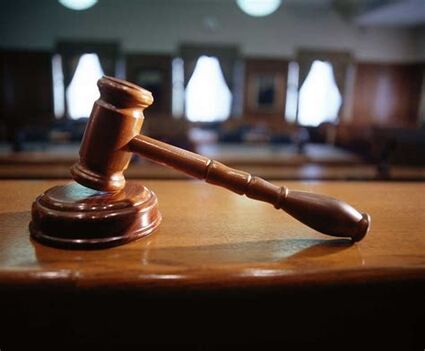Drug possession prohibition halted
March 11, 2021
DAYTON–County Prosecutor Dale Slack discussed with the County Commissioners on March 8 the State of Washington vs. Blake case ruling that deemed statute 69.50.4013 unconstitutional which formerly made the possession of controlled substances illegal. This ruling is based on the premise that some people are found in possession claiming to be without knowledge or consent and are then unjustly charged and prosecuted.
The attorney for the nonprofit Washington Appellate Project, Richard Lechich, argued that the law violated due process when he presented the case before the state Supreme Court. "All other state and federal drug possession statutes require that prosecutors show the person knowingly and intentionally had the drugs on their person." Instead, Washington State law "placed the burden on defendants to prove their innocence...The court should overrule its previous cases and interpret the drug possession law to have a knowing or intentional requirement."
However, the Court instead declared the entire law unconstitutional in effect leaving the state with no grounds for drug possession prohibition.
The Senate Bill 5471 which has been introduced to reinstate the law with including the word "knowingly" to the language and Senate Bill 5468 is trying to do the same thing but add a $3,000 fine for unknowingly possessing drugs.
Just last month, House Bill 1499 passed a measure similar to what the Supreme Court has now done to remove the penalty for personal drug possession. No further action has been taken by the House but Chair of the Committee for the Bill, Representative Roger Goodman (D-Kirkland), thinks they should proceed with "an intense focus on racial and social equity." Supporters of the idea seek an innovative approach to balance the scales and focus on treatment and recovery rather than fines and incarceration.
The change as it stands brings a ripple effect, Slack said, because the new law is based on constitutional rights, cases can now not only be overturned but those who were fined can claim restitution and request the charges be removed from the record. The question is who is responsible for these repayments. It's suspected that it will be the State. But because a portion of the fines go the counties, Columbia County should be wary responsibility could fall on them.
Slack clarified that restitution would only be to those whose sole charge was for possession with no other charge for collateral crimes. The County has determined there are 120 cases of sole count convictions for possession of an illegal substance just since 2004, but repayment could stretch as far back as 1971 when the Uniform Controlled Substance Act was enacted.
Commissioner Ryan Rundell questioned what this change will do to the existing drug problem in the county. Slack answered that though there would not be sole charges for drug possession, he suspects there will be more charges for collateral drug-related crimes like burglary or violent acts.
Since they can no longer charge for possession, Slack said many addicts will not get the help they need by being placed in rehab, which is the intent when charging them rather than incarceration.
Slack explained that manufacturing and distribution is still criminal but drawing the line between possession for personal use and possession for distribution can be a blurry one. Also, arrests for possessions lead to finding distributors. Now they have to rely on tips from informants which are hard to come by.
Questions about possession and safety came up for such cases involving those with commercial driver's licenses and those on probation. Slack offered assurance that the safety measures and drug testing will remain in place.
Another point of concern around the state is violent prisoners who also were convicted of drug possession may likely have reduced sentences.
Slack said the situation is a "mess for a lot of people going forward." But the hope is that the legislature will clean this up with more clear direction. In the meantime, Slack said, the public can contact their representatives, as well as those who are involved with the various bills. Additionally, when election time comes for representatives and the State Supreme Court Judges, voters might take note of who supported this change, he said.









